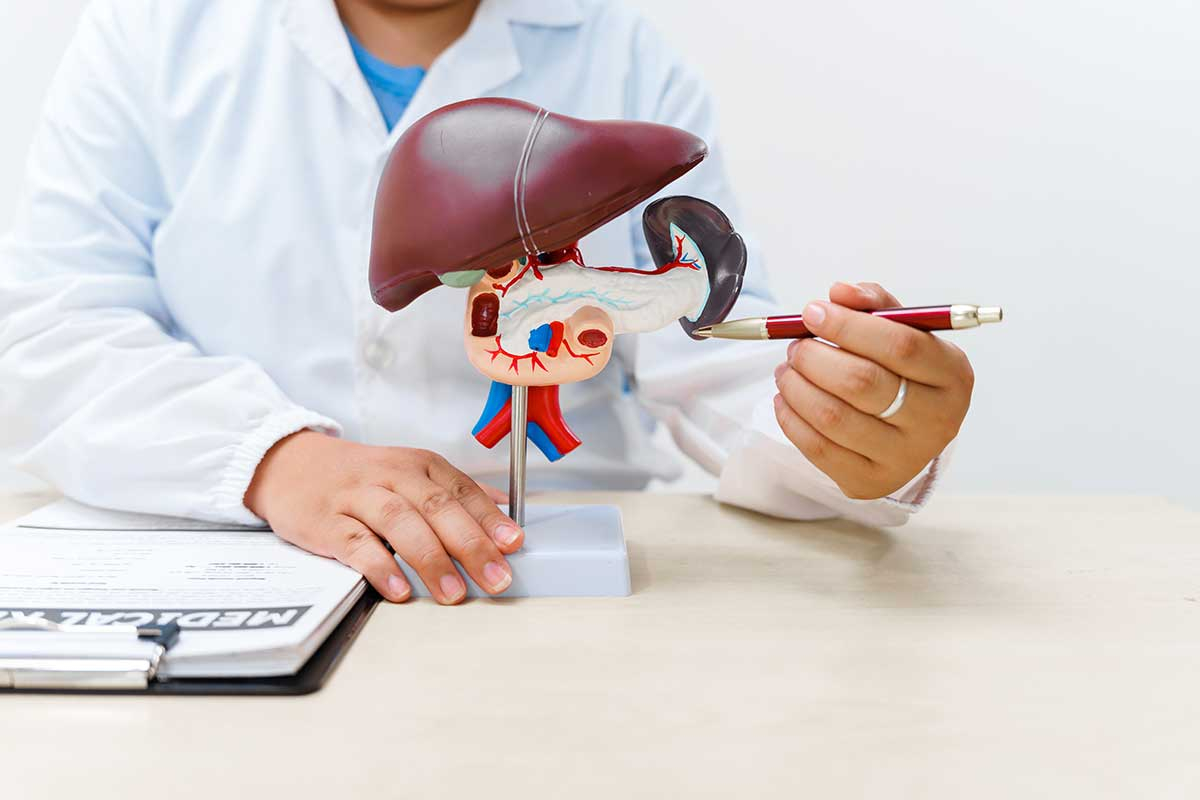At Clinic Consultation, we are proud to offer specialized care from experienced hepatologists for patients seeking diagnosis and treatment of liver-related conditions in Trois-Rivières / QC. Our mission is to ensure that every patient has access to high-quality medical attention from professionals who are dedicated to their health and well-being. Hepatologists play a crucial role in managing diseases affecting the liver, gallbladder, pancreas, and bile ducts, ensuring these vital organs function properly.
Our clinic boasts a modern, welcoming environment equipped with advanced technology for comprehensive exams and procedures in hepatology. Whether you need routine consultations or more complex treatments, Clinic Consultation provides personalized and holistic care tailored to your unique health needs. Our hepatologists prioritize patient well-being and aim to deliver effective solutions to enhance your quality of life.
Booking an appointment with a hepatologist at Clinic Consultation is simple and convenient. If you are in Trois-Rivières / QC and require specialized liver care, don’t hesitate to contact us. We are here to provide exceptional care, ensuring a positive experience and effective results.
A hepatologist is a medical professional specializing in diagnosing, treating, and managing liver-related conditions. This includes diseases of the liver, gallbladder, pancreas, and bile ducts. Hepatologists play a crucial role in the early detection, prevention, and treatment of chronic and acute liver conditions, ensuring patients receive comprehensive care to maintain their overall health.
At Clinic Consultation, our hepatologists are equipped with advanced technology and extensive expertise, offering personalized treatment plans tailored to each patient’s unique needs.
What Diseases Does a Hepatologist Treat?
Hepatologists manage a wide range of liver and related conditions. Common diseases include:
- Viral Hepatitis (A, B, C, etc.): Infections causing liver inflammation.
- Fatty Liver Disease: Accumulation of fat in the liver, often linked to obesity.
- Cirrhosis: Scarring of the liver due to chronic damage.
- Liver Cancer: Malignant tumors affecting liver function.
- Alcoholic Liver Disease: Damage caused by excessive alcohol consumption.
- Wilson’s Disease: A rare genetic disorder leading to copper buildup in the liver.
- Cholangitis: Inflammation of the bile ducts, impairing bile flow.
Managing these conditions effectively helps prevent severe complications and enhances patient outcomes.
How Can a Hepatologist Help?
A hepatologist is essential in detecting silent liver diseases that might progress unnoticed. Through regular screenings and advanced diagnostic tools, they identify early signs of liver damage and recommend treatments that prevent further deterioration. This proactive approach can significantly improve long-term outcomes for patients.
Moreover, hepatologists guide patients in adopting healthier lifestyles, including dietary changes and monitoring alcohol consumption, to reduce liver strain and promote overall well-being.
What Tests Does a Hepatologist Request?
To ensure accurate diagnosis and treatment, a hepatologist may order several tests:
- Abdominal Ultrasound: Visualizes the liver's size, shape, and any abnormalities.
- Liver Elastography: Assesses liver stiffness to detect fibrosis or cirrhosis.
- MRI: Provides detailed imaging for identifying liver lesions.
- Liver Biopsy: Examines liver tissue to confirm specific diseases.
- Blood Tests: Checks liver enzyme levels and identifies viral infections.
- CT Scan: Offers a cross-sectional view of liver structures.
- Endoscopy: Detects esophageal varices linked to advanced liver conditions.
These diagnostic tools enable hepatologists to craft precise and effective treatment plans.
When Should You See a Hepatologist?
Consider consulting a hepatologist in the following situations:
- Yellowing of Skin or Eyes (Jaundice): A sign of liver dysfunction.
- Persistent Fatigue: Often associated with chronic liver conditions.
- Unexplained Abdominal Pain: Especially in the upper right quadrant.
- Dark Urine or Pale Stools: Indicators of bile flow issues.
- Family History of Liver Disease: Puts you at higher risk.
- Frequent Alcohol Consumption: Warrants regular liver health checks.
- Abnormal Blood test Results: Such as elevated liver enzymes.
Early consultation can prevent the progression of liver diseases and improve treatment outcomes.
Maintaining liver health requires a balanced diet, regular exercise, and avoiding excessive alcohol intake. Vaccinations for hepatitis A and B provide effective protection against certain liver infections. Routine medical check-ups and avoiding self-medication also play crucial roles in prevention.
What to Ask a Hepatologist During the First Appointment?
To make the most of your consultation, consider asking:
- What tests are necessary to evaluate my liver health?
- How can my diet impact my liver?
- What lifestyle changes can reduce my risk of liver diseases?
- Is alcohol consumption safe for me?
- What do my blood test results indicate?
- What treatments are available for my condition?
- How often should I undergo liver check-ups?
At Clinic Consultation, our skilled hepatologists are dedicated to delivering exceptional care. Book your appointment today and take the first step toward ensuring your liver health.
